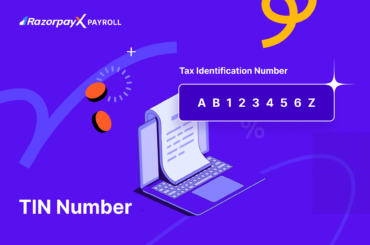Introduction
A Forbes study shows disengaged employees cost businesses 34% of their annual salary. That’s about ₹20,400 for someone earning ₹60,000 yearly.
Keeping unmotivated employees affects profits, but letting them go improperly can also harm a company’s reputation. This is where having a notice period becomes crucial!
Here notice period is not just about fulfilling legal obligations, it’s about providing a structured way to manage employee departures, ensuring they have a smooth transition and promoting workplace harmony.
Whether it’s about adhering to employment law or planning workforce adjustments, understanding notice periods is key.
In this article, we’ll break down the meaning of notice periods, how they work, and their role in promoting smoother employee resignations.
This guide is designed to help both employers and employees navigate the notice period process with actionable steps.
What Is Notice Period?
A notice period is a set time an employee must work after resigning or before termination of employment. It serves as a transition period, allowing both the employee and employer to prepare for the change. For employees, it provides time to finish tasks and wrap up responsibilities. For employers, it allows time to search for a replacement/ new hire.
Notice periods may vary depending on the employment contract and terms and conditions.
In India, labour laws under the Industrial Disputes Act of 1947 set guidelines for everything related to notice periods. Whether resigning or undergoing job termination, employees should be aware of their notice period guidelines and their company’s resignation policy for a more seamless transition.
What Do HR’s Make Notice Period Mandatory?
HR usually make notice periods compulsory for an effortless transition when an employee leaves. It provides time to recruit a replacement, train new staff, and complete ongoing projects without disruption.
A notice period also helps with knowledge transfer, reducing the impact of the employee’s departure on the team.
Failing to have a clear policy can harm the reputation of both the employer and the employee. Employers may face a negative net promoter score if offboarding is mismanaged, while employees who leave without notice could risk a poor reference.
Ensuring a proper notice period process from either end helps both parties exit on good terms, keeping future opportunities open.
Types of Notice Period
Now that you understand what a notice period is and why employers make it mandatory, let’s get to know the different types of notice periods and how they look and play out in real work settings.
Statutory Notice Period
Statutory notice periods are set based on government regulations. They specify the minimum number of days an employee must work after resignation or termination.
For example, if an employee has worked for a company for less than a year, they may be required to give a 15-day notice as set by the government. The length of service will directly influence the duration.
Contractual Notice Period
This type of notice is outlined in the employment contract. The duration is usually agreed upon when the employee is hired. It can be longer than the statutory period but cannot be shorter.
For instance, a company might require a 30-day notice period for employees who have been with the company for over two years.
Probation Period
A probation period is a trial phase where the employee’s performance is evaluated. Typically lasting three to six months, this period allows both parties to assess if they fit together or not.
If the probation period is unsuccessful, termination of employment may occur with a shorter notice period of one to two weeks.
Notice Period Rules in India
In India, notice periods are governed by labour laws, and companies often frame certain policies around them. Most common rules include:
- Leave during notice period: Employees can use sick or earned leave during the notice period, but it requires approval from the reporting manager/ HR. For extended sick leave, a medical certificate may be necessary.
- Salary during the notice period: Employees are entitled to their full salary during the notice period. Employers cannot withhold salary for resignation, though they can deduct unsettled dues or recover damages from the final settlement.
- Notice period during probation: Employees on probation typically face shorter notice periods, depending on the terms outlined in the probation letter.
Can You Resign Without Serving a Notice Period?
It is legal for employees to resign at any time. Employees are free to leave at any moment. However, employees are required to stick to the notice period specified in the employment contract.
There are two situations in which you can leave without having to provide notice, but each has its own set of consequences.
- Immediate Resignation: Resigning immediately without notice can lead to financial and legal risks, including a potential loss of salary or employee benefits. Employers may also choose to take legal action in certain cases.
- Employer Consent: In some cases, an employer may agree to waive the notice period. However, this is not mandatory, and employees could be responsible for the terms specified in the employment agreement.
How HR’s Can Implement an Effective Notice Period System
HR can adopt several strategies to create a smooth and effective notice period system for their employees:
Clear Employment Contract
An employment contract should clearly define the notice period and its related obligations. HRs should communicate this during onboarding and regularly review it with employees.
Investing in an employee management system can automate this communication, ensuring consistent delivery throughout the organization.
Offer Incentives
Providing severance pay or bonuses for fulfilling the notice period can motivate employees to stay committed. Always verify beforehand if the incentive scheme complies with severance pay and employment laws.
Leverage Performance Reviews
Tracking performance and addressing issues early in reviews can prevent sudden employee resignations. Performance evaluations provide opportunities to align expectations and manage transition plans.
Equip Managers with Communication Skills
Trained managers can identify underlying reasons for employee departures and effectively address concerns, reducing turnover and improving retention.
Smooth Transition Process
A structured handover plan ensures continuity of work during the notice period. Clear documentation, knowledge transfer, and clear communication with stakeholders will contribute to a smooth transition.
HR can use tools like RazorpayX Payroll to ensure that final settlements, including severance pay or bonus recovery, are handled swiftly and accurately.
RazorpayX Payroll can simplify this process by ensuring that all adjustments related to the notice period and other benefits are accurately calculated. Thus helping in seamless and compliant termination of employment.
Exit Interviews
HR can even conduct exit interviews to gain insights into employee departures. This can help improve retention strategies and maintain company culture.
How Does the Notice Period Benefit Employers and Employees?
Benefits for Employers:
- Smooth transitions: It gives time to plan for project completion and hire replacements.
- Minimized disruption: It reduces operational gaps caused by sudden exits.
- Legal compliance: It ensures adherence to employment law and employee legal obligations.
Benefits for Employees:
- Smoother career transition: It provides time to search for a new job or negotiate terms.
- Legal protection: It ensures compliance with employment contracts and employee rights.
- Professionalism: It helps maintain good relationships for future references.
By adhering to the notice period, both employers and employees ensure a smoother departure process, avoid legal issues, and maintain strong professional ties.
Conclusion
In conclusion, understanding the notice period is crucial for both employers and employees.
For employers, it helps minimize disruptions, while employees benefit from time to secure new opportunities and ensure fair settlements.
By establishing clear policies and fostering open communication, organizations can navigate the termination of employment process seamlessly.
Don’t let misunderstandings around notice periods hold your organization back, explore how RazorpayX Payroll can support you through accurate employment contract settlements.
FAQs
What happens if employees don't serve notice period?
If employees don’t serve the agreed-upon notice period, it’s typically considered a breach of contract. Employers can deduct notice pay, provide negative references, or in extreme cases, take legal action to recover damages.
Do employees get a salary on notice period?
Yes, employees are entitled to receive their salary during the notice period, unless they resign without serving it. Employers may pay this amount, or in some cases, deduct it from the final settlement if the notice isn’t served.
How does a notice period impact company culture?
Notice periods promote transparency, respect, and trust within an organization. These values foster strong employer-employee relationships, which ultimately enhance morale, productivity, and the overall company culture.
How long should a notice period be?
The notice period in India typically ranges from 15 to 45 days for most employees, while senior-level roles may require 30 to 90 days. For entry-level employees, notice periods can be generally shorter, around 15 to 30 days.





